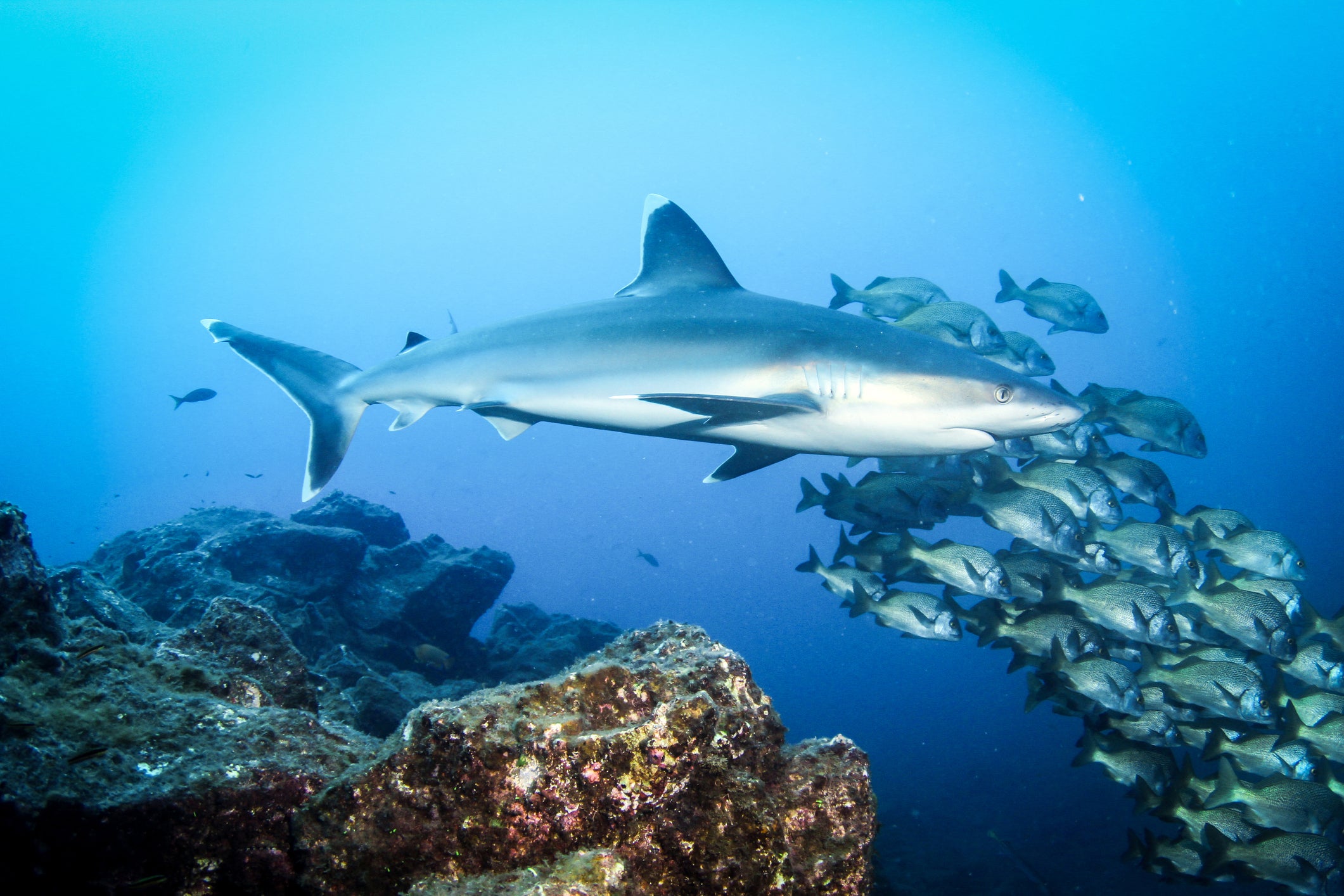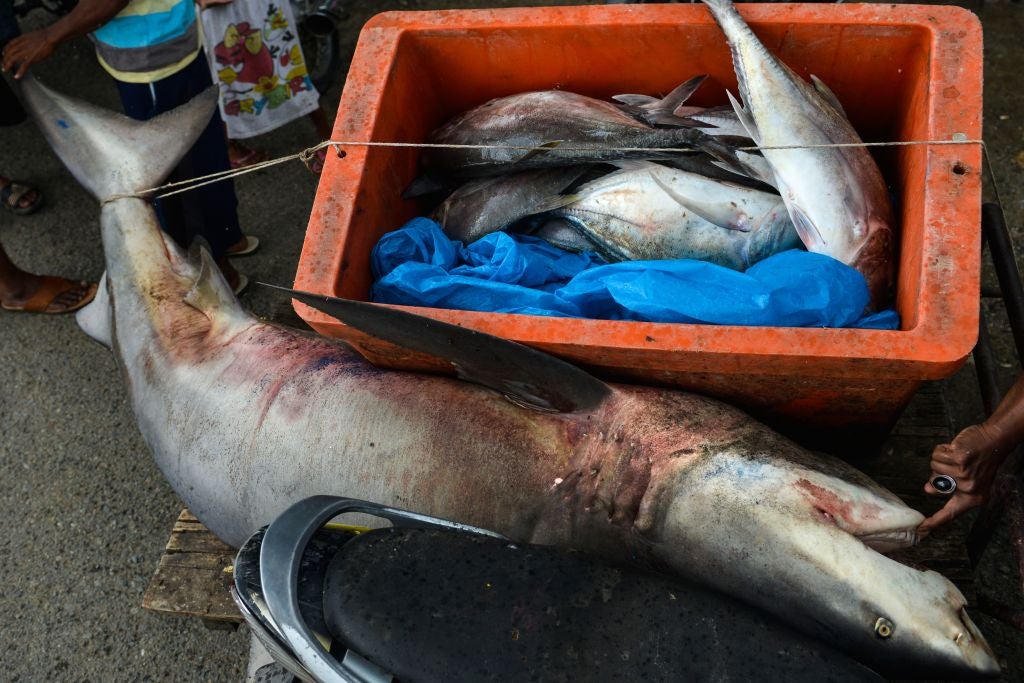Pet owners are unwittingly feeding their cats and dogs endangered shark, DNA study reveals
Researchers found a DNA from a number of shark species, some of which are classified as vulnerable, in pet food

The meat of endangered sharks has been found in pet food and is being unwittingly fed to cats and dogs, according to a study.
Several pet food brands have been found to contain endangered and exploited species though none of the products list shark as an ingredient, instead use generic terms such as “ocean fish”.
The omission stops pet owners from making informed and environmentally-conscious decisions and could see them unknowingly contributing to the overfishing of shark populations.
Researchers from the National University of Singapore tested 45 pet food products from 16 different brands and found most products used vague terminology such as “white fish” and “white bait” to describe its contents.
Some specifically referred to “tuna” or “salmon” whilst others did not mention fish as ingredient whilst all failed to list shark.
The scientists sequenced 144 samples using DNA barcoding and found 45, roughly a third, contained shark DNA.
The most frequently identified species were blue shark, silky shark and white tip reef shark - the latter two of which are listed as “vulnerable” in the International Union for Conservation of Nature (ICUN) Red List.
The DNA of the sicklefin weasel shark, the Caribbean sharpnose shark and the sand tiger shark, all vulnerable species, were also identified in the products.
“Sharks were not listed as ingredients on any of the sampled products tested; while this is not illegal or a required procedure, we argue that many pet owners and lovers would be alarmed to find out that they are likely contributing to the unsustainable fishing practices that have caused massive declines in global shark populations,” the study’s authors, Ian French and Ben Wainwright, write.
“Despite taking numerous samples from each of the collected products, it is likely that we did not discover the full diversity of sharks from those samples.”

Shark populations across the world have declined by more than 70 per cent over the past 50 years, largely attributed to overfishing.
The global demand for shark products - such as fins, liver oil and meat - is also a contributing factor as is the mislabeling of seafood products be it accidental or not, the researchers say.
They suggest the meat found in pet foods could be taken from shark carcasses discarded after valuable fins are removed - a move that could be commended as an attempt to avoid wastefulness - or a sign of a growing shark meat trade.
French and Wainwright are calling for better ingredients labeling standards to be implemented globally to both avoid the exploitation of endangered species and give pet owners greater control over what they feed their pets.
They added: “Better labeling that avoids the currently used vague catch-all terminology would allow consumers to make more informed choices.
“This in turn would benefit shark populations by helping to mitigate unsustainable fishing and resource use incompatible with their continued survival.”
Join our commenting forum
Join thought-provoking conversations, follow other Independent readers and see their replies
Comments
Bookmark popover
Removed from bookmarks